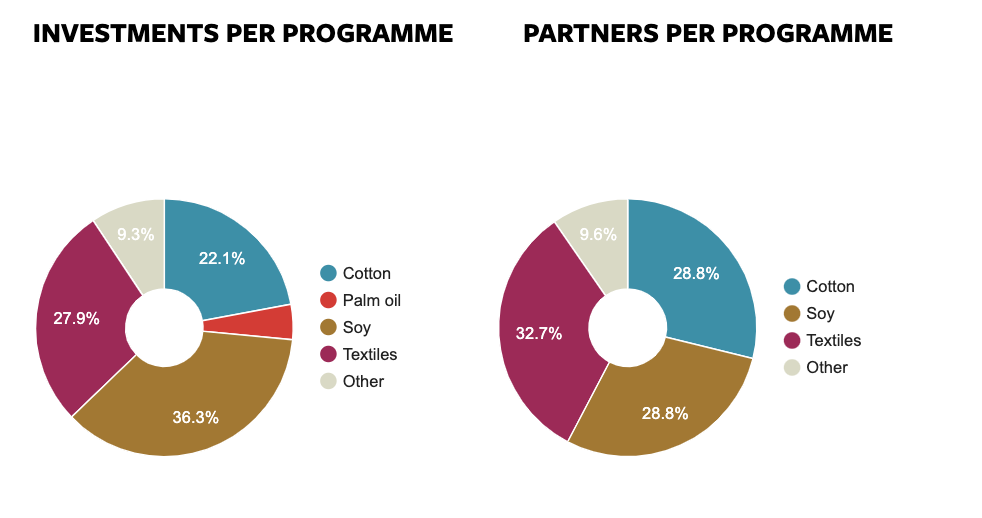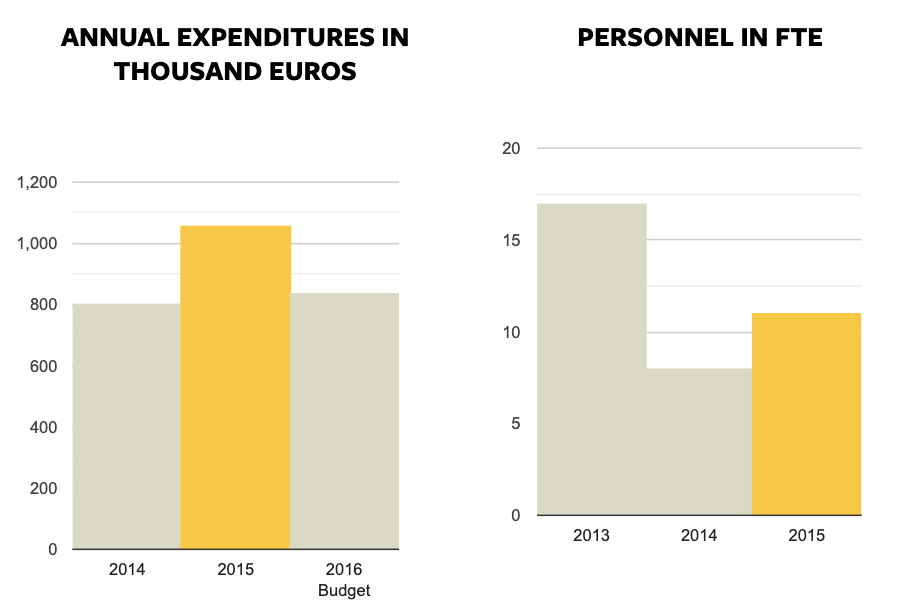REGIONAL COMMODITY PROGRAMMES
As support for cotton farmers in China falls away, Solidaridad is empowering farmers to think outside of the box.

As the second largest importer of palm oil in the world with over 6 million tonnes, Solidaridad is promoting responsible procurement in China to support sustainable production in Southeast Asia.

China is the main destination for soy produced in South America. As a result, China plays a critical role in the global sustainable soy trade agenda.

As the Chinese government is setting stricter regulations on wastewater discharge and labour costs in the textiles industry, factories are seeking support from Solidaridad’s Better Mill Initiative in order to achieve compliance.

DEVELOPMENTS
Despite a slowing down trend in recent years, China’s economy continues to be consumer-driven with growing demand for quality assurance. Food safety and climate change have become top concerns of the Chinese government. More stringent environmental and social regulations are pushing out domestic production, leading to China’s increasing importance in global trade.
At the same time, with increased domestic labour costs, President Xi Jinping is enforcing stricter laws on company employees. As a result, some industries face tighter profit margins and are still not willing to pay the extra costs for establishing sustainability measures.
The growing demand to address these concerns reaffirms Solidaridad’s long term strategy. Solidaridad is working directly with Chinese and multinational companies to build consensus to develop their own corporate sustainability strategies. Solidaridad plays a critical role to not only promote sustainable production, but also responsible procurement. In 2015, Solidaridad launched new initiatives to engage Chinese stakeholders to support sustainable production around the world.

ACHIEVEMENTS
At the end of 2015, Solidaridad successfully concluded Phase I of the textile programme’s Better Mill Initiative (BMI), as part of an ongoing initiative with H&M to increase the environmental and economic efficiency in 38 wet processing and dyeing factories in China’s fashion supply chain. The 2.5 year project achieved 6.3 million tonnes in water savings and 138,000 tonnes reduction in CO2 emissions.
Solidaridad continued the innovative project funded by the Walmart Foundation to empower female cotton farmers to become leaders within their communities and further develop their business skills. The project has facilitated to elect 49 female leaders within the communities of the cotton programme.
Solidaridad launched the China Sustainable Palm Oil Working group and the Sustainable Soy Trade Platform to support producers in Southeast Asia and South America with the aim to achieve a deforestation-free supply chain in palm oil and soy.
Solidaridad led a study tour to the Netherlands in June with the top Chinese palm oil companies. At the end of 2015, The China Sustainable Palm Oil Working group was launched with 4 of the leading palm oil import companies as core members.
The Sustainable Soy Trade Platform engaged 7 of the top 20 Chinese soy import companies accounting for 20 million out of the 70 million tonnes of China’s total soy import volume. In December, Solidaridad led a study tour to Brazil to enable Chinese soy importers to see first hand the effects of soy production on deforestation.

PARTNERSHIPS
H&M continued to be an influential partner in the textile programme’s Better Mill Initiative (BMI). The joint efforts of brands, factories and the expert team brought benefits to up to 38 mills to achieve cost-saving resource efficient results. As a result, Solidaridad started new partnerships with brands including New Look, Bestseller, Tommy Hilfiger, and G-star. Solidaridad continued partnerships with the Dutch Consulate in Shanghai and started a new partnership with the Alibaba Foundation.
Solidaridad strengthened its strategic partnership with VF to train cotton farmers under the Better Cotton Initiative (BCI) criteria. The Walmart Foundation continued as an influential donor to bring economic empowerment to female cotton farmers. The success of the project has encouraged other partners to develop gender strategies for other projects.
Solidaridad collaborated with the Paulson Institute, The Nature Conservancy, WWF and the China Soybean Industry to jointly launch the Sustainable Soy Trade Platform funded by the Moore Foundation. Having engaged with 7 leading Chinese soy companies including Jiusan Group, Hopefull Group, Sinograin, CP Group and COFCO, the project aims to send a demand signal for deforestation-free soy for the Chinese market.
The palm oil programme initiated new partnerships with Julong Group, Fangshun Group, Chinatex, and the China Vegetable Oil Industry Association. The Embassy of the Netherlands in Beijing. Rabobank has been an influential partner to support both soy and palm oil initiatives.
ORGANIZATION
Solidaridad China maintained its two offices in China with a total of 11 FTEs.
Solidaridad China played a crucial role in organizing multi-stakeholder events in the major sectors of textiles, soy, and palm oil. Solidaridad also successfully organized two learning tours. One learning tour consisted of top palm oil company representatives who travelled to the Netherlands in June. In December, Solidaridad led a group of top soy company representatives on a trip to Brazil.
